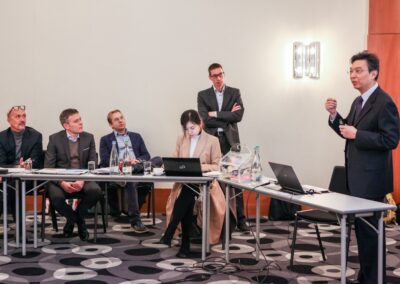Increasing links between Switzerland and China in field of sustainable construction
January 21, 2019
Generis AG has been commissioned by the Swiss Agency for Development and Cooperation (DEZA) to develop collaboration in sustainable urban development: the Sino-Swiss Low Carbon Cities (SSLCC) programme. As part of its work in this arena, Generis AG recently welcomed a delegation of the Chinese Academy of Building Research to a study tour around Switzerland during which the group met with several businesses and organisations specialising in sustainable construction. The purpose of the visit was to provide insight into the steps Switzerland is taking to achieve its targets for climate protection.
Switzerland has many years’ experience of sustainable construction. The Minergie label has achieved international recognition and has been adopted in other countries. The focus of this fact-finding mission by a delegation from the Chinese Academy of Building Research (CABR) in January 2019 was understanding how Switzerland has ensured building standards are implemented across the construction sector and have been promoted in the media and public debate. Understanding the legal foundations underpinning these developments was also on the agenda.
The Chinese Academy of Building Research (CABR) is the largest research organisation dedicated to the building construction sector in China. In addition to undertaking research and development, CABR is responsible for developing national guidelines for sustainable construction. Up until 2000, the organisation was part of MOHURD (the Ministry of Housing Urban Rural Development) and was then privatised, operating since then as a state-controlled business.
The CABR is currently in the final phase of publishing the first set of national guidelines on low-energy construction in China. This led to the study visit to Switzerland as part of the Sino-Swiss Low Carbon Cities (SSLCC) programme in order to facilitate knowledge transfer between Switzerland and China and to highlight the importance of ecological construction in efforts to reduce CO2 emissions.

